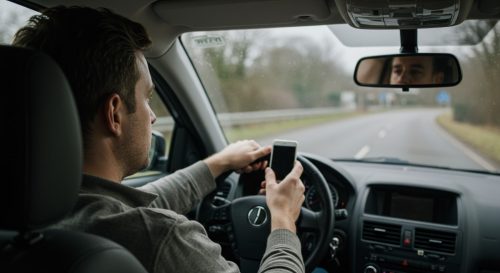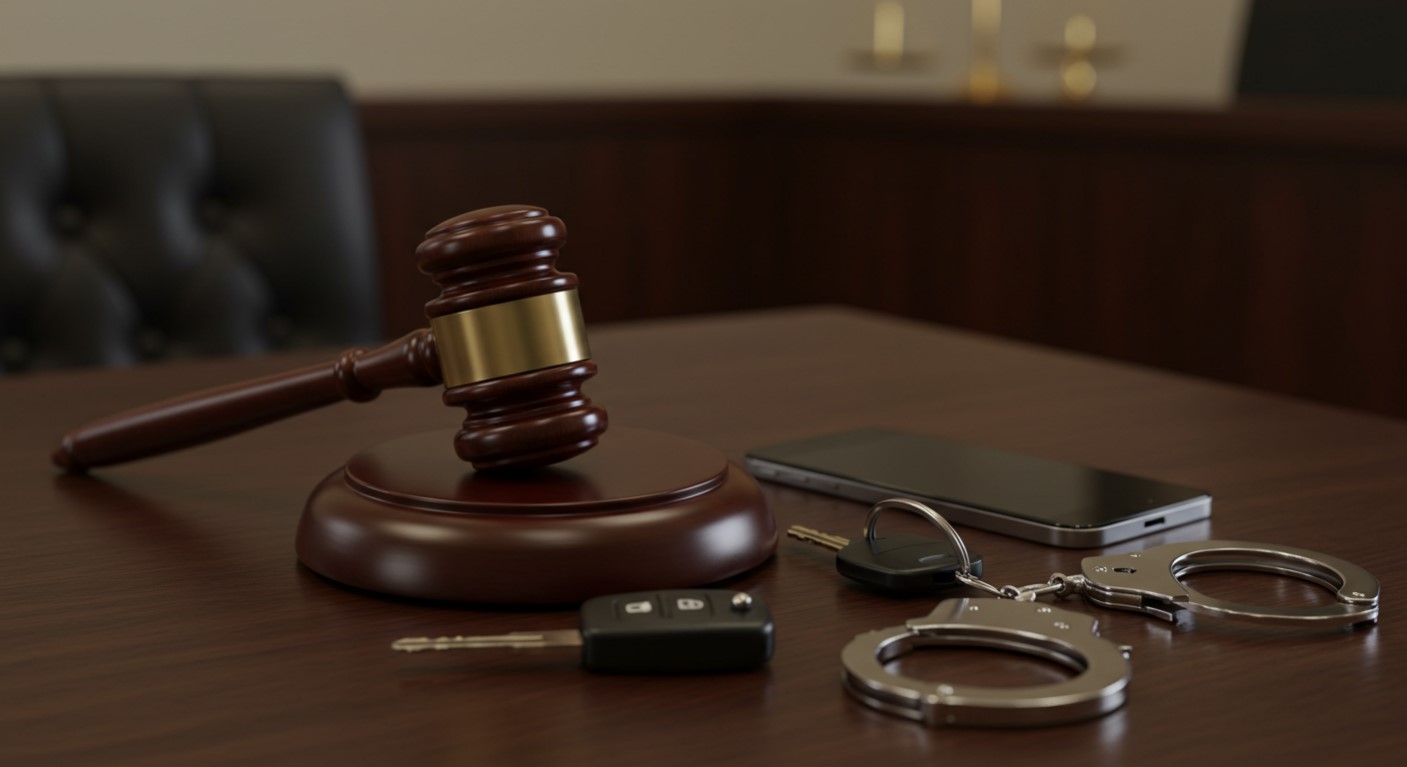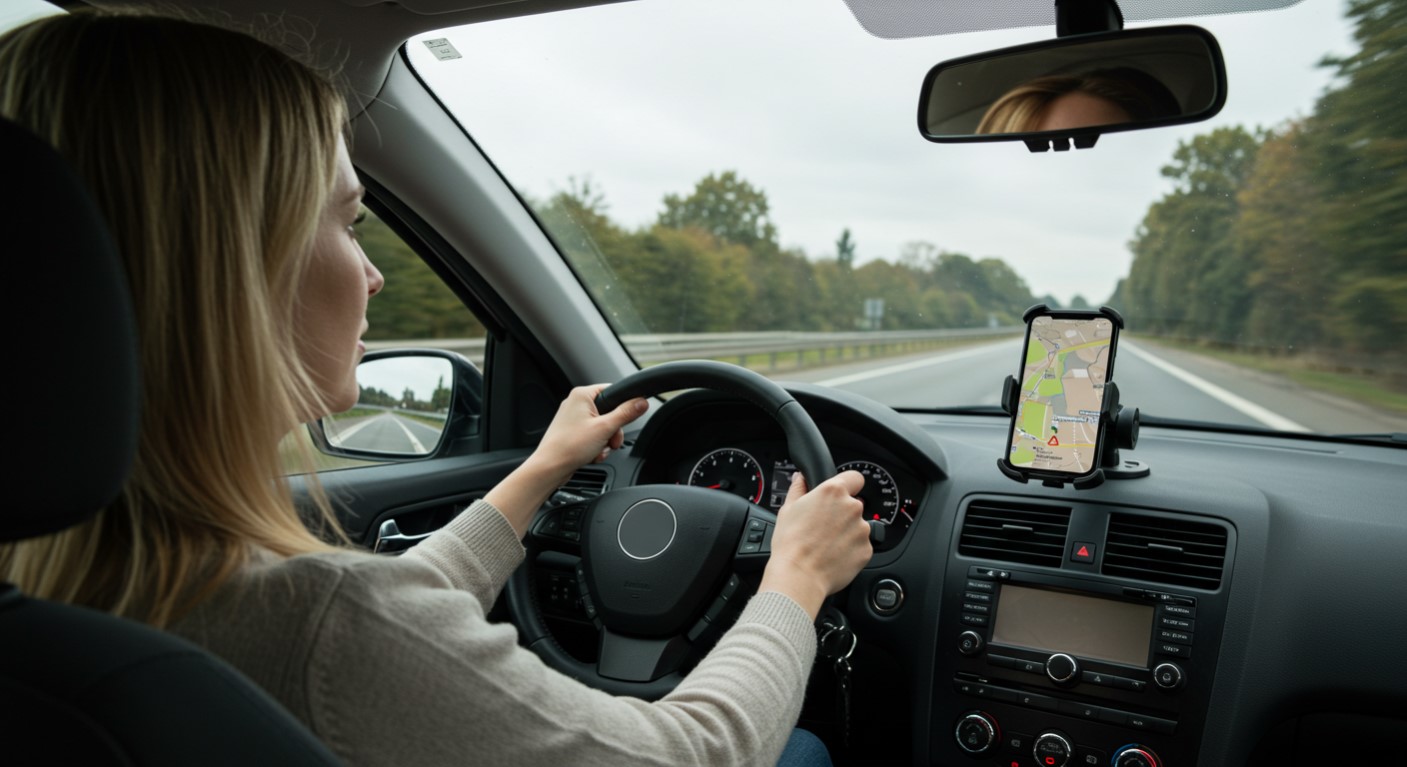How to Prevent Prosecution for Mobile Device Usage While Driving in England: An Exhaustive Guide

How to Prevent Prosecution for Mobile Device Usage While Driving in England: An Exhaustive Guide
Mobile phones are a part of everyday life, but using one behind the wheel is a different matter. Even a glance at a screen can put you and others at risk, and in England, it is treated as a serious driving offence.
This guide will walk you through what the law says and how to prevent prosecution for mobile device usage while driving, helping you stay both safe and on the right side of the law.
Laws Surrounding Mobile Device Usage While Driving

The laws surrounding mobile device usage while driving are primarily covered under the Road Traffic Act 1988 and the Road Vehicles (Construction and Use) Regulations 1986.
In essence, it’s illegal to hold a mobile device while driving in England and Wales. This includes any handheld device capable of performing interactive communication functions, primarily those that connect to the internet or make calls.
The law doesn’t only apply to mobile phones but also to other handheld electronic devices such as tablets, laptops, and any other device deemed distracting while driving.
The law encompasses a wide range of activities such as:
- Making or receiving calls: It’s illegal to make or receive calls on a handheld mobile device while driving, even if you’re stopped at traffic lights or stuck in traffic.
- Texting or social media usage: Sending or reading text messages, checking social media platforms, or any other form of interactive communication is prohibited while driving.
- Using a mobile device as a satnav: You’re not allowed to use your handheld mobile device as a navigational aid while driving. If you need to use it, the device should be mounted on a windscreen or dashboard holder, and the route should be set before you start your journey.
- Recording videos or taking photos: Using your mobile device to record videos or take photos while driving is illegal and could lead to prosecution.
Remember, these restrictions apply whenever the engine is running, even if the vehicle is stationary. It applies to all drivers in England and Wales, irrespective of whether you’re driving a car, riding a motorcycle or bicycle, or even leading a horse.
Exceptions for Mobile Device Usage While Driving

There are a few exceptions to these laws. For instance, you can use a handheld device while driving if it’s necessary to call 999 in response to a genuine emergency and it’s unsafe or impractical to stop.
Moreover, the use of two-way radios while driving is not covered by these laws, although, for safety reasons, their use should be minimised.
Penalties for breaching these laws are stringent, aiming to deter drivers from dangerous and potentially life-threatening behaviour. Understanding these laws is the first step towards safer driving practices and avoiding potential legal repercussions.
- Hands-Free Devices
Invest in hands-free equipment such as mounts or Bluetooth headsets. These devices allow you to operate your phone without holding it. Note, however, that while hands-free is legal, you can still be pulled over if the police believe you’re distracted and not in control of your vehicle.
- Pre-travel Preparation
Set up your mobile device before you start your journey. If you’re using your phone for navigation, input your destination and start the directions before you set off. Ensure your mobile device is secured in an easily viewable place that does not obstruct your view of the road.
- Safe Pulling Over
If you need to make a call, send a text, or do anything else that requires you to interact with your phone, pull over safely first. Find a suitable place where it’s legal to stop. Turn off your engine and apply the handbrake before using your device.
- Use Mobile Applications
Numerous applications can help promote safer driving. These include apps that read text messages and incoming caller IDs aloud, apps that block calls or texts while driving, and apps that send automatic responses to calls or texts received while you’re driving.
- Do Not Disturb Mode
Use the “Do Not Disturb” mode on your phone. Most smartphones have this feature, which silences calls, messages, and other notifications when activated. Some phones even have a specific setting for driving, which can automatically detect when you’re in motion and activate itself.
- Voice Control
Many mobile devices and cars now come with voice control systems. These systems can help you make calls, send texts, change music, or even set navigation routes without needing to touch your device.
- Educate Yourself and Others
Keep updated with the laws about mobile device use while driving. They can and do change as technology advances. Also, educate your family and friends about the dangers and legality of using a mobile device while driving.
Using a mobile device while driving can put you and others in significant danger. By understanding the law and utilising safe practices, we can reduce the risk of accidents and ensure safer roads for everyone. Remember, no call or text is worth risking a life.
How to Prevent Prosecution for Mobile Device Usage While Driving: Importance of Legal Representation

Legal representation plays a crucial role in any legal proceedings, including traffic offences like using a mobile device while driving. It involves employing a professional, typically a solicitor or lawyer, to provide advice, guidance, and representation during legal proceedings. Here are some reasons why legal representation is indispensable:
- Understanding of the Law
Legal professionals have an in-depth understanding of the law, which includes legislation, case law, and legal procedures. This understanding allows them to interpret and apply the law accurately to your case, which can significantly influence the proceedings’ outcome.
- Navigating Legal Procedures
Legal proceedings often involve complex procedures, time limits, and specific documentation. A legal representative will guide you through these processes, ensuring that all procedures are followed correctly and deadlines are met.
- Developing a Legal Strategy
A solicitor can review the evidence against you, evaluate the strengths and weaknesses of your case, and develop a strategic legal defence. This strategy could involve challenging the accuracy of the evidence, questioning the legality of the traffic stop, or presenting mitigating circumstances.
- Representation in Court
If your case goes to court, you’ll need someone to represent you. A solicitor can argue on your behalf, question witnesses, and present evidence. Their expertise can prove invaluable in challenging the prosecution’s case and advocating for your interests.
- Negotiating Penalties
If you’re found guilty, a legal representative can negotiate penalties on your behalf. They can present mitigating factors and argue for lesser penalties, such as attending a driver’s awareness course instead of receiving penalty points on your licence.
- Moral Support
Facing a legal proceeding can be stressful and confusing. Having a solicitor by your side can provide moral support and reassurance, helping to alleviate some of the emotional strain.
In conclusion, facing prosecution for using a mobile device while driving is a serious matter that can have significant consequences, including fines, points on your licence, and potential disqualification from driving.
Legal representation is invaluable in these situations, providing expert knowledge, strategic guidance, court representation, and emotional support. Engaging a legal representative can maximise your chances of achieving the most favourable outcome possible.
Notice: Informational Content Disclaimer
The content provided on this website, including articles, blog posts, and other informational materials, is intended for general informational purposes only. It is not intended as, and should not be considered, legal advice.
Visitors to this website should be aware that the information presented here is not a substitute for seeking legal advice from a qualified solicitor or legal professional. Each individual's legal situation is unique, and the information provided may not be applicable to specific circumstances.
If you require legal advice or have specific legal questions, we encourage you to contact us directly. Our experienced team of solicitors is here to assist you with your legal needs and provide tailored advice to address your concerns.
Please be advised that any communication through this website, including the use of contact forms or email, does not create a solicitor-client relationship. Confidential or time-sensitive information should not be sent through this website. To establish a solicitor-client relationship and discuss your legal matters in detail, please contact us for a consultation.
We strive to provide accurate and up-to-date information, but we make no representations or warranties regarding the accuracy, completeness, or suitability of the information contained on this website. We shall not be liable for any reliance placed on the information provided herein.
Thank you for visiting our website. We look forward to the opportunity to assist you with your legal needs.




